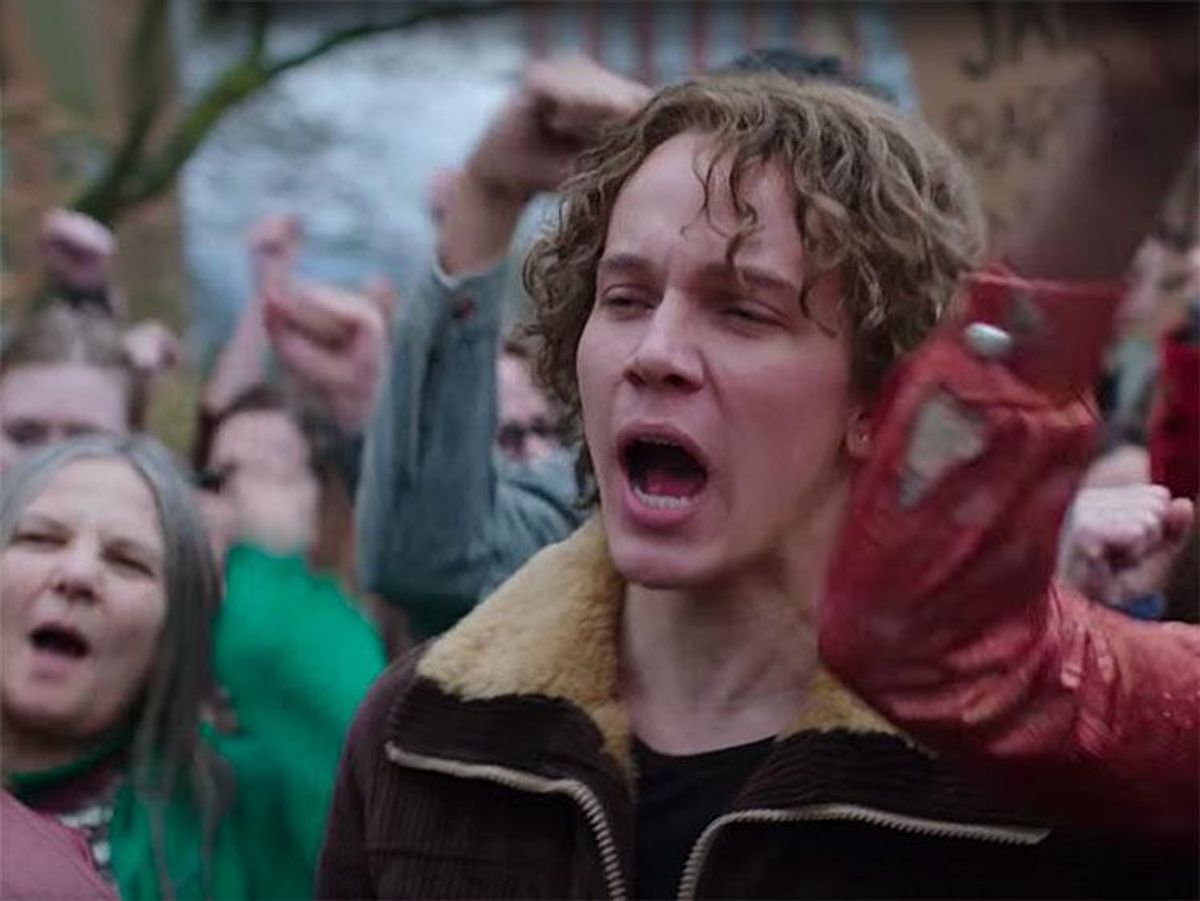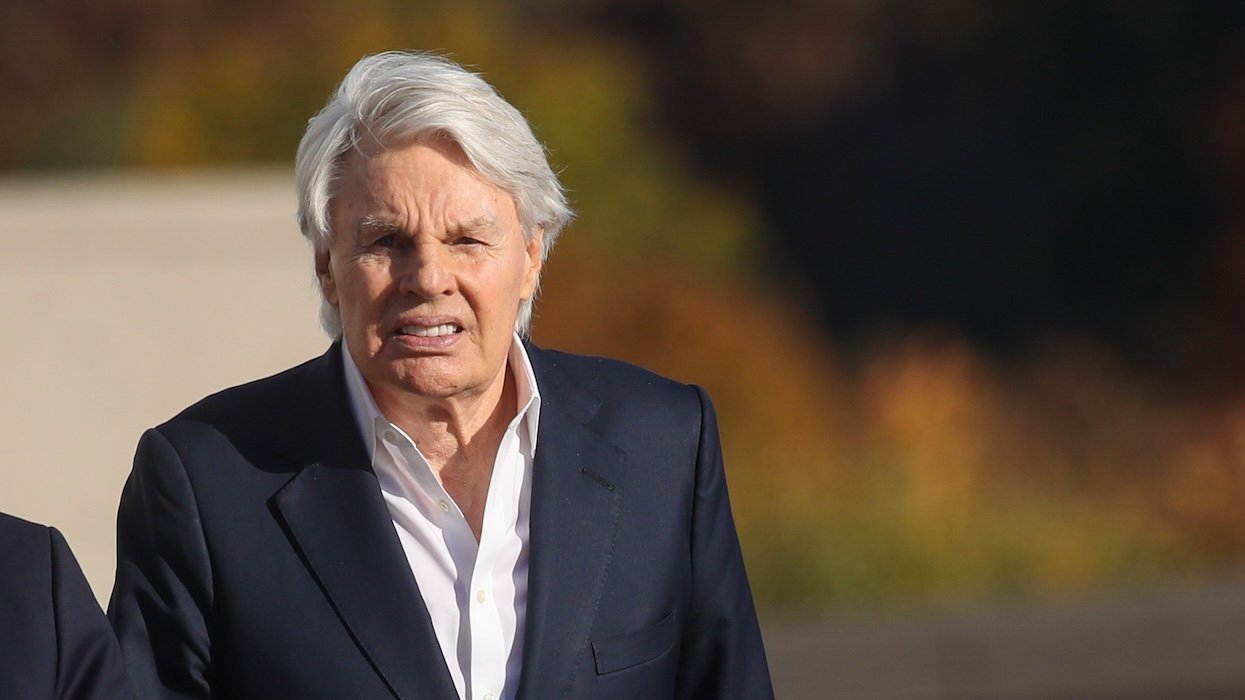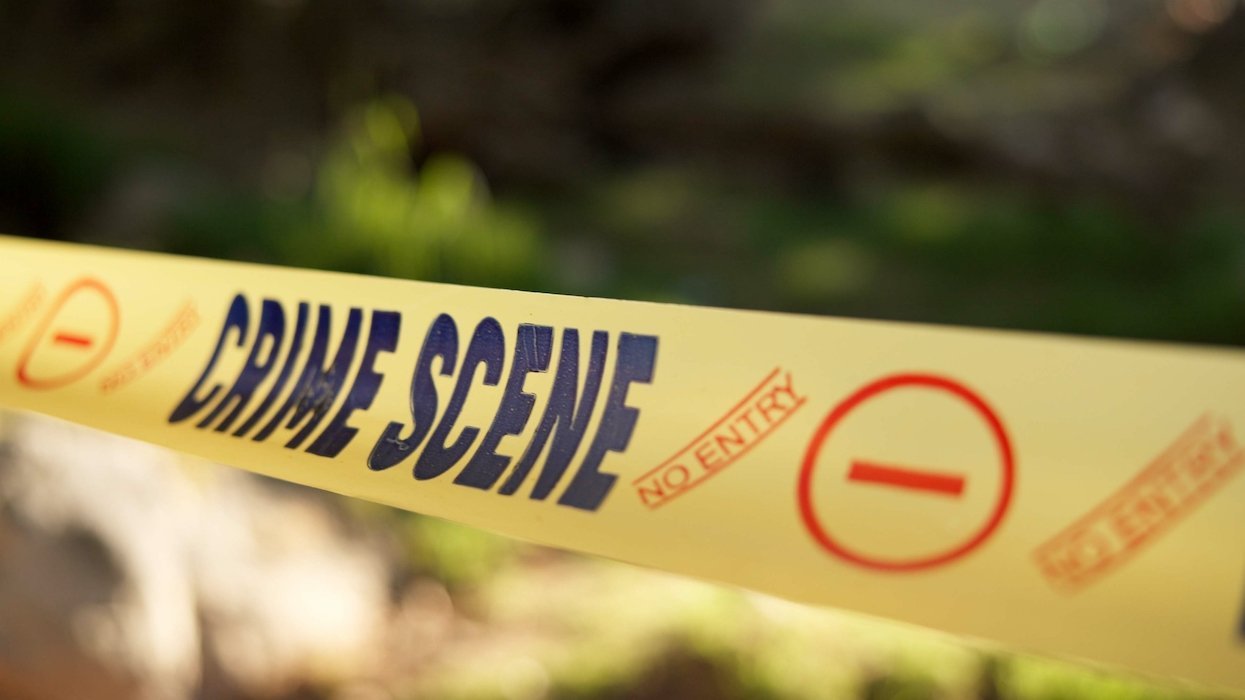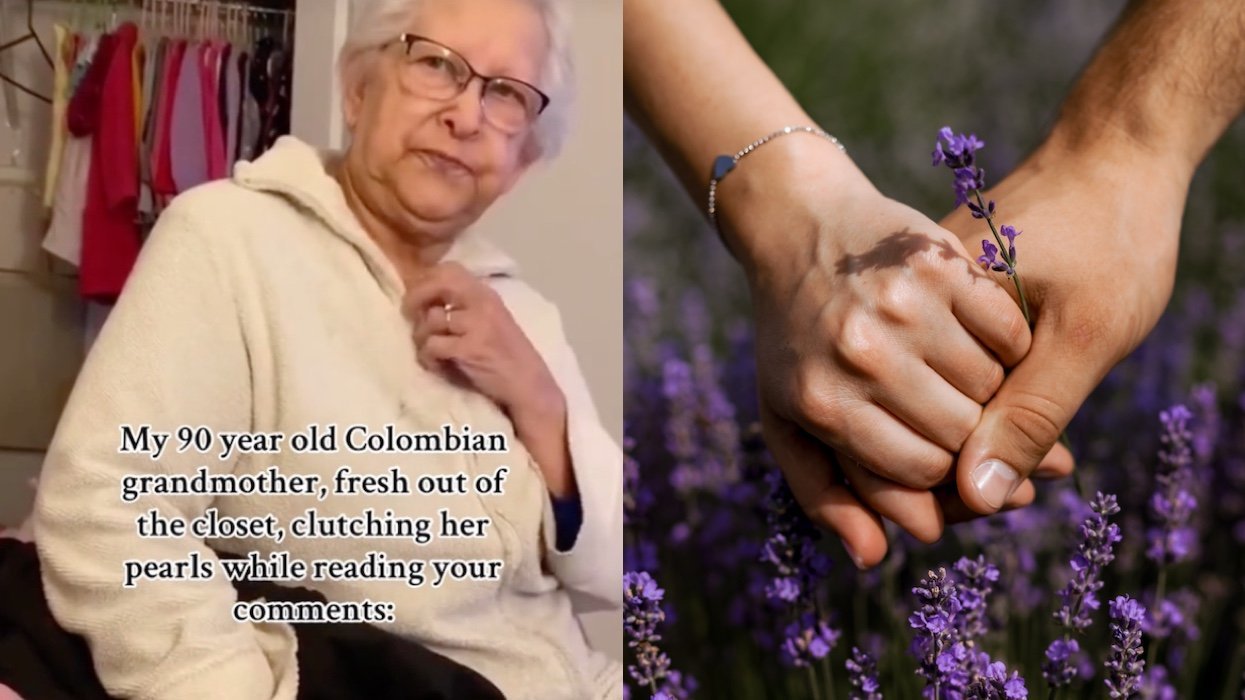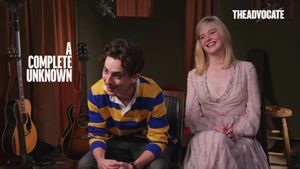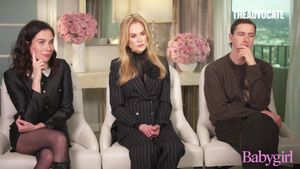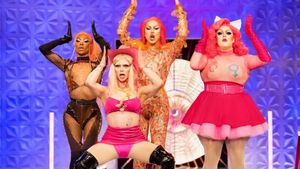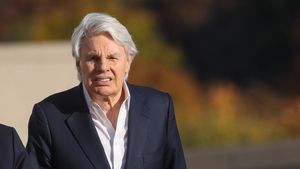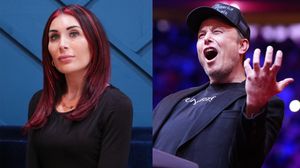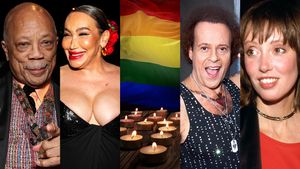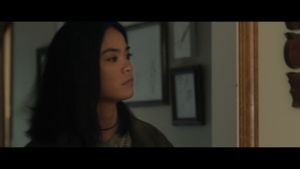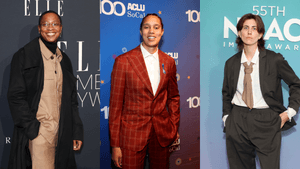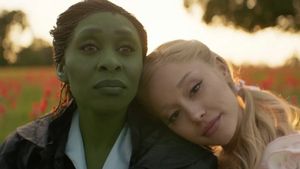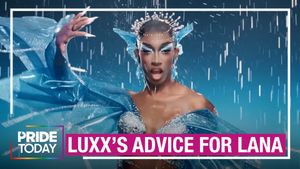Gay activist Cleve Jones (Guy Pearce), speaking to a reporter in When We Rise, says, "Each generation has its own epic confrontations it must face." The message is clear: You're fighting a battle, dear viewer. But it's a battle that's been fought before. And it's one that will be fought again.
Throughout the week, ABC will be airing episodes of the miniseries created by Dustin Lance Black (Milk), which depicts decades of recent LGBT history through the eyes of Jones and fellow activists Roma Guy and Ken Jones. There are many lessons to learn. And during the presidency of Donald Trump, who has already begun to attack transgender rights, learning them may be more essential than ever.
To this end, The Advocate discussed each episode with Black, asking the gay director and writer what LGBT viewers -- and Americans more broadly -- should take away from each "epic confrontation" that has taken place since a trans woman threw the first brick at the Stonewall Inn in 1969.
[RELATED: "When We Rise Part One: We Are Stronger Together"]
Part two of When We Rise begins with lesbian activist Roma Guy in 1977 and continues from her perspective through a critical period in gay rights: the defeat of Proposition 6, also known as the Briggs Initiative, and the assasination of Harvey Milk. Directed by Dee Rees (Pariah), the first half of the episode shows, from the female point of view, how political power was built in the LGBT rights movement and how a mourning community responded to a crisis.
"As opposed to Milk, which looked at it from the gay white male experience, I wanted to look at it from the lesbian experience, from the women's experience," said Black, who rose to acclaim for his Oscar-winning screenplay on the life of the late activist.
As first glimpsed in part one, which examined how the peace, women's, and civil rights movements intersected with gay liberation, "LGBT" wasn't always a unified acronym. As seen through Guy's perspective, the lesbian movement, fighting against the patriarchy, was initially hesitant to bring even gay men into their battle for equality.
"We didn't use to be 'LGBT,'" said Black. "We weren't even gay and lesbian in the beginning. Gay people didn't mingle a terrific amount with the lesbian community. In San Francisco, there were two different streets: There was Valencia Street [for women] and there was Castro Street [for men]. There wasn't a lot of collaboration. It was only around things like Proposition 6 that we began to see how politically we benefit and gain power politically by working together."
Prop. 6, a voter initiative in California, proposed banning LGBT people and their allies from working in public schools. A continuation of Anita Bryant's "Save the Children" initiative to overturn gay rights in Florida, the measure, as an overarching threat, worked to galvanize queer people into action, activism, and coming together to fight for equality like never before.
"If episode one was about whose shoulders we stand on, this is about the importance of collaboration between LGBT people," said Black. "This is to those who start complaining that there's too many letters in the alphabet of who we are and it's becoming too difficult to say. I think this episode loud and clear says: Add more letters."
Prop. 6, as a threat to different letters of the alphabet, served as a unifying opponent. And it worked. The initiative was resoundly defeated in the voting booth -- an important success showing how LGBT activists could shift public opinion. The Trump administration, which is already beginning to roll back LGBT rights in its revocation of trans education guidelines, is already serving a similiar role as an antagonist in the present day. As trans rights and lives come under attack, it becomes even more vital for the movement to be as inclusive as possible.
"We become more powerful politically, which means we can protect ourselves and our families, if we work together more," Black said. "You see us still too often leaving out our trans brothers and sisters. [We must be] understanding how that's not just being P.C., and not just being a good human being to spread our arms wider -- it also is being politically savvy."
There were several historic moments depicted in tonight's installment. The assassination of Harvey Milk, a unifying figure for the movement and the fight against Prop. 6, is a central event in the episode. Milk's death sparked a peaceful protest -- a candlelit march to the steps of San Francisco's City Hall. But then, the White Night riots broke out after the courts gave Dan White, who assassinated Milk and Mayor George Moscone, a light sentence for a horrific crime. For a mourning LGBT community, this final assault on its humanity and dignity was too much to bear.
Black said the riots are an example of how uprising -- loud and sometimes destructive protest -- can be justified, but only as a last resort. If LGBT people are failed by the law and the courts, he said, there may be no other recourse than to take to the streets.
"The riots in the street weren't a result of the assassination of Harvey Milk. The riots in the street were a reaction to even the court's deeming gay lives less [than] worthy," said Black. "At that point, they realized the police weren't going to protect them. Dan White was a cop. And the courts now weren't going to protect them either. So if you can't get the laws to protect you, if you can't get the police to protect you, and you can't even get the courts to protect you, well, you've got nothing."
"At that point, you've got to rise up and you've got to make it known that you are a people who will not let your lives and your family's lives be ripped away without consequences," he added.
Today, it is unlikely that America would fail LGBT people as it did in 1979 after Milk was killed. But if LGBT legal protections are ripped away and lives are endangered, a similiar response would be necessary, said Black.
"I would be very clear, in comparison to these times, right now we still have avenues to turn. We still have the law to lean on and we need to make sure that we're pressing our lawmakers to ensure that laws are followed and that more laws are passed to protect us in these regressive times. And we certainly still have the courts to lean on," he said.
"But, at the point in which we no longer have the courts and we no longer have the law and we no longer have the police, yes, any people must rise up to protect their lives and their families' lives. I hope it doesn't come to that."
In addition to the defeat of the Briggs Initiative and the death of Milk -- no small subject matter -- Wednesday night also depicted the beginning of the AIDS crisis on the West Coast. Viewers see how fear strikes the community after gay people begin falling ill and dying of an unknown cause. But they also see courage. Guy, her partner, and the Women's Center help nurse the "untouchable" AIDS patients. Facing rejection, Ken Jones reaches out to fellow African-Americans to warn them of the oncoming health danger. Cleve Jones, after having been seasoned as an activist through Milk's life and death, initiates the AIDS Memorial Quilt to honor the epidemic's casualties.
In crafting this episode, Black wanted to ensure that, through the work of Ken and his outreach, viewers saw how trans people and people of color were hit by HIV, pushing back against whitewashed media depictions of a gay crisis.
"If you think gay white guys in the Castro have it bad, well, there was a whole other experience that wasn't being discussed about HIV and AIDS, and that was the young African-American folks and trans folks in the Tenderloin, and the community that absolutely ignored that they had gay and trans members," Black said.
Black also wanted to show how the AIDS crisis, like Prop. 6, brought together different factions of the community. This life-and-death bond would endure and pave the way for the marriage equality movement.
"In the AIDS epidemic, it became clear that the ties between gays and lesbians went deeper than just the ballot box," Black said. "When lesbians showed up to take care of gay men, we proved we were a family. There's no stronger bond than that. And I do think it's that strength that's gotten us to where we are today."
If there's one lesson that LGBT people, fearful of attacks on their rights today, should learn from this time period, it's this, he said: "[We're] even strong enough to survive a plague."
When We Rise continues Thursday, 9 p.m. Eastern on ABC. Watch past episodes on Hulu.
